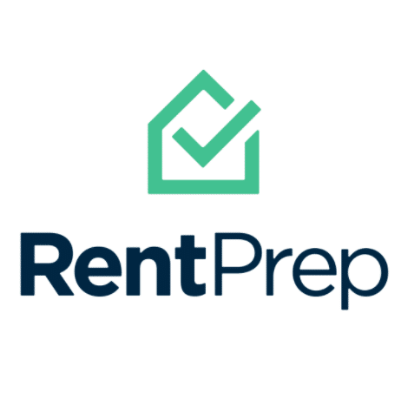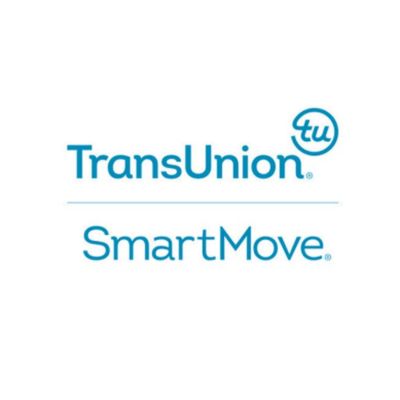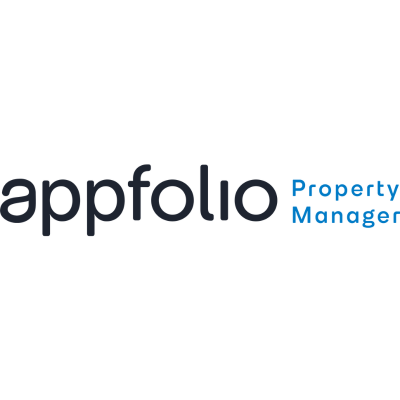Last Updated: January 2024

Managing multifamily rental properties, also called residential property management, requires prompt and consistent attention. The difference in management lies in the fact that these are people’s homes. If a water main bursts, that means potentially tens or hundreds of families are without water for cooking, toilet flushing, and showers for an extended period of time. Properly dealing with upset tenants in situations like this requires a skilled property manager who can quickly coordinate the repair and remain calm while addressing tenant frustrations.
Multifamily Property Management Definition
Multifamily property management is a specialized type of real estate management that deals with the administrative, financial, and operational tasks involved in managing residential properties that consist of multiple units within one complex or building. This can include rent collection, tenant relations, property maintenance, financial reporting, legal compliance, and other aspects that ensure smooth and profitable operation of the rental property.
Self Manage or Professional Management?
Deciding between self-management and professional management for a multifamily property hinges on considerations of time, expertise, and distance. If owners can dedicate substantial time, possess the requisite knowledge for tenant dealings, maintenance, and legal matters, and reside close to the property, self-management can be a viable choice. Conversely, professional management provides expertise and convenience, ensuring regulatory compliance, effective tenant management, and maintenance oversight, which can be especially beneficial for large properties or for owners living far from their investment.
10 Common Multifamily Property Management Services
Managing multifamily rental real estate can be very demanding due the large number of tenants and their respective needs. Smaller sized property landlords may opt for “Partial Service Property Management”, (i.e. the company will help with one or a few aspects of management). Larger sized multifamily property owners almost exclusively choose “Full Service Property Management”, which entails the property manager taking care of every action that would normally be done by a self-managing landlord. Below we take a look at some of the most common residential property management services:
Maintenance
Residential property management companies almost always handle the maintenance on properties under their management (unless the owner requests otherwise). Residential property managers field all maintenance requests directly from tenants and then coordinate repairs with respective property maintenance technicians. In addition to handling maintenance jobs, management companies handle “unit turnovers” which becomes a more frequent occurrence as the number of units grows larger. Unit turnover can range from painting, cleaning, and changing out flooring, to a full-fledged remodel if the unit is older and due for an upgrade. Furthermore, residential property managers monitor maintenance cost reporting and plan for preventative maintenance as needed; among also overseeing contracted work such as building improvements jobs.
Rent Collection
Collecting rent and keeping record of all deposits, is an essential yet fundamental service provided by residential property management firms. Pursuing late rent and imposing late fees are other more tedious tasks tied to rent collection by property managers. A majority of larger property management companies are turning to real estate software solutions for rent collection and tenant account management. Many of these programs allow for tenants to pay online via ACH, view account charges (such as RUBS or late fees), and monitor their ledgers to track account balances.
Financial Reporting & Budgets
Keeping record of income and expenses (i.e. receivables and payables), and generating ongoing financial reports such as Profit and Loss reports (i.e. P&L) for property owners are a cornerstone service provided by property management firms. Management companies also provide value by performing financial planning such as budgets to ensure that properties remain maintained and profitable. Part of this planning requires performing market rent analyses, which are analyses of comparable market rents, changes in area demographics, and anticipated vacancy rates.
Leasing & Marketing
How many times have you driven by a large apartment complex and seen balloons with a sign reading “Move in Special!”. A residential property management company’s main value proposition is their ability to successfully market and lease up properties under management to minimize vacancies. A comprehensive marketing program may include listing the vacancy online on a website such as Apartments.com, Zillow, or other residential property leasing website, offering move-in incentives such as free rent or a discounted security deposit, hosting open houses and tours, and installing prominent leasing signage to catch drive by prospects. Along with the aforementioned marketing efforts, property managers or leasing agents will handle application processing, ordering credit reports and checking references, and ultimately facilitating a signed lease agreement.
Tenant Screening & Onboarding
Tenant screening and onboarding is a foundational process in multifamily property management, designed to secure reliable and responsible occupants. It begins with collecting applications from interested individuals, followed by meticulous background checks, credit reports, and reference checks to assess the prospective tenant’s financial stability and behavioral history. Upon approval, property managers draft lease agreements, ensuring they clearly outline tenant responsibilities and property rules to preempt any misunderstandings. A thorough and efficient screening and onboarding process helps cultivate a harmonious living environment, reduce tenant-related issues, and maintain a steady income flow for property owners.
Tenant Relations
Professional residential property management companies are attentive to tenants’ needs and provide prompt responses to their concerns. In residential property management, settling tenant disputes or enforcing property rules are tasks that require experienced mediators such as a property manager. Manager and tenant communication mediums can include phone calls, text messages, emails, letters, or direct-messages via a property management software system. Various personnel in the company are trained to help tenants with different types of requests, such as a property manager, a leasing agent, accounting department, maintenance technician, or legal counsel.
Legal & Compliance
Handling tenant evictions or filing for debt collections are tasks that professional property management companies can easily take care of for a property owner. Furthermore, the likelihood of getting hit with a lawsuit for any myriad of reasons (e.g. slip-and-fall, personal property damage, etc) increases as the number of units increases. For compliance, large residential complexes are prone to similar compliance requirements as commercial properties for things such as elevators, fire & life safety systems, and common area or amenity safety inspections. Some counties or jurisdictions even require annual physical property inspections, in which a public employed inspector walks every unit to inspect for any safety violations. Residential property management companies have the experience to ensure successful legal handling and compliance with all respective agencies to ensure a safe and compliant residential rental property.
Utility Management
Utility management in multifamily properties is a significant operational aspect. It involves not just ensuring uninterrupted provision of utilities like water, electricity, gas, and internet in common areas and individual units, but also closely monitoring the usage and costs associated with these services. Utility management may also entail instituting measures to enhance energy efficiency and minimize wastage, which can lead to substantial cost savings over time. Since most multifamily landlords cover some utility costs, it may also include apportioning utility costs to individual tenants based on their usage, a process which necessitates accurate metering and transparent billing systems.
Tenant Turnover
Tenant turnover is an inevitable yet challenging aspect of multifamily property management. It requires a careful balance of ensuring a smooth exit for departing tenants – including the return of their security deposit after deducting any legitimate charges, and the closure of their accounts – with preparing the unit for incoming tenants. This transition phase often involves a thorough cleaning, necessary repairs, and sometimes even renovations to maintain the appeal of the property and ensure it meets the expectations of future renters. Streamlining this process is crucial for minimizing vacancy periods and maintaining a steady stream of rental income from each unit in the property.
Capital Improvement Projects
Capital improvement projects play a vital role in multifamily property management as they directly contribute to enhancing property value and appeal. These are significant undertakings, often involving renovations, structural additions, or upgrades to existing amenities, aimed at enhancing tenant satisfaction and boosting rental income. Property managers oversee these projects from conception to completion, ensuring they adhere to budget, timeframe, and quality standards. Through strategic planning and effective project management, these improvements can lead to higher occupancy rates, increased rental rates, and ultimately, a more substantial return on investment for property owners.
Multifamily Tenant Screening






Residential tenant screening is something that most people are familiar with, especially if you have been on the tenant side of the transaction to rent an apartment or home. Since residential rental property leases are typically in the name of an individual, the primary focus in the residential tenant screening process is to qualify the person’s credit worthiness through applicant-supplied documents, as well as through third-party supplied softwares such as running a credit check.
Residential Property Management Software






Residential property management software helps property owners, property managers, and tenants handle various aspects of administration such as rent payment, scheduling property maintenance, and owner reporting. Rather it be a single-family rental, multi-family complex, condos, or townhouse, a residential property management software can help streamline management.
Multifamily Property Management Fees


The fee to manage a residential rental property can range between 4% and 8% of the gross rental income, depending on the property size and scope of services included (i.e. full service vs. partial service). Contracts to manage residential rental properties can be structured as a fixed fee, percentage of rent, or cost plus, where the property management company is paid base fee and additional services are billed a la carte.
Residential Property Management Jobs
The world of residential property management is very vast and so are the job opportunities for those interested in pursuing a career in the field. Below is a few of the most common residential property management jobs:
The #1 Rental Property Newsletter
Once a month, we send out an exclusive Rental Property Market Update with top stories, current mortgage rates, building products, and more. No spam and unsubscribe anytime.


Multifamily Property Management FAQ
What are Common Expenses for Multifamily Properties?
Multi-family property ownership comes with various expenses that are key components of operational cost. Mortgage payments, if the property is financed, form a significant part of this expense. Property insurance premiums and annual tax payments are also recurrent expenditures that property owners need to account for. Maintenance and repair costs, both planned and unexpected, are inevitable to keep the property in good condition. If a property management company is engaged, their fees also contribute to the overall expenses. Furthermore, utilities for common areas, such as lighting, waste management, and amenities, as well as capital expenditures for property improvements or large-scale repairs, are integral to the overall financial planning for multi-family properties. Many of the largest multifamily rental property companies thoroughly understand these expenses, and use their scale to reduce and minimize them.
How is Rent for Each Unit Determined in a Multifamily Property?


Determining rent for each unit in a multifamily property involves a detailed analysis of several key factors. One of the most important is market research – understanding what comparable units in the same locality are charging can provide a baseline for rent amounts. The unique features of each unit, such as size, layout, views, and upgrades, also play a significant role in establishing rent. Current market conditions, including supply and demand dynamics for rental units, further influence rental pricing. Lastly, property managers must also consider the cost of property upkeep and desired return on investment to ensure the set rent covers expenses and generates a satisfactory yield.
How are Utilities Handled in a Multifamily Property?
The handling of utilities in a multifamily property varies based on the property’s structure and the property management’s policies. In some properties, utilities for individual units may be metered separately, allowing tenants to be directly responsible for their own utility usage. In cases where individual unit metering is not possible, utilities may be included in the rent, or apportioned among tenants using a ratio utility billing system (RUBS) based on factors like unit size or occupancy. For utilities related to common areas or shared services like trash removal, these costs are typically absorbed by the landlord and factored into the overall rent pricing. Utility management is a critical part of property management as it directly impacts the property’s operational costs and tenant satisfaction.
About the Author


Ryan Nelson
I’m an investor, real estate developer, and property manager with hands-on experience in all types of real estate from single family homes up to hundreds of thousands of square feet of commercial real estate. RentalRealEstate is my mission to create the ultimate real estate investor platform for expert resources, reviews and tools. Learn more about my story.










